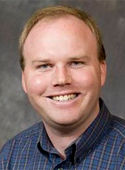I believe that Christ is my Savior and Redeemer and that the Church of Jesus Christ of Latter-day Saints is led by Him. I believe that we have prophets on the earth today and that Joseph Smith was a prophet of God who really did translate the Book of Mormon, which really is an ancient testament of Jesus Christ. This testimony rests on two kinds of things. First, and probably less important, is that I find these claims consistent with my own experience and the experiences of others. For just one example, the numerous witnesses who testified to seeing the golden plates from which the Book of Mormon was translated make it difficult for me to accept claims that no such plates existed. From my own experience, I have prayed to know if the Book of Mormon is true and I felt a distinct response to that prayer. I have tried living the teachings of Christ and it has made me a better person. I have prayed for help and feel that I received it.
Now, at my day job I do statistics, so I am perfectly well aware that coincidences happen. I am also an economist, and doing that I have seen many instances where people’s descriptions of events are shaded by their own beliefs. Too often people overvalue anecdotes that confirm their biases. But I think the probability is low that what I have felt and seen and read about the LDS church and Jesus Christ’s life is all either made up or coincidental. And as an economist, I know that we don’t act based on certainty so much as the weighting of what is most likely. Do I know the sun will set tonight? No, but it is incredibly likely, and that is good enough for me to act.
All of that, then, constitutes the first reason that I believe. The second is perhaps more important but is rather difficult to explain. In the first reason, belief is about rationally weighing probabilities. That is fine, but belief is also an emotional response. When faced with a variety of possible ways that one can explain the world, we have preferences over which one we accept. We have a choice to believe. So given that choice, I choose to believe. Now, if one’s beliefs are unsupported by any facts, I think one should get new beliefs, but I’ve seen enough theories bandied about to know that the available facts in our world are consistent with many different views of the world. So we have the choice of which one of those views we think is right, after all the current data are in. Since I believe in prayer, I think God can help us in making that choice, but it is still, in the end, up to us to have faith or not.
In my statistical work I often have data that are consistent with more than one theory. Or worse, and more common, that are not entirely consistent with any current theory. So I keep digging and revising my beliefs as I go. In the same way, I learn more about the gospel as I test it and live it. As I read the scriptures and pray and try to live the teachings of Christianity I revise my understanding of the Universe, hopefully for the better. I think that is what God expects of us.
Posted May 2014 on FairMormon.org

Frank McIntyre received his B.A. degree in economics from Brigham Young University. He then received a PhD in economics from Stanford University. After teaching at Brigham Young University he is now on the faculty of the Rutgers Business School in the department of Finance and Economics.
His research applies microeconometrics to various questions in labor and law, such as wage policy, personal bankruptcy, returns to education, and the criminal justice system. His work has appeared in a variety of academic journals such as the Journal of Labor Economics, the Journal of Law and Economics, the Journal of Empirical Legal Studies, Texas Law Review, the Journal of Economic Behavior and Organizations, and Economic Development and Cultural Change.